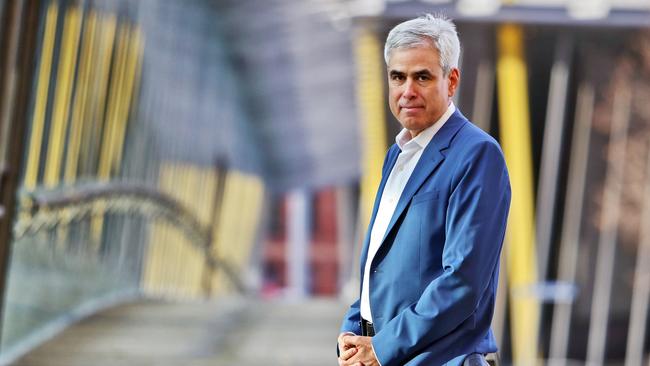Jonathan Haidt’s 7 steps to raising a well-adjusted adult
What if we skipped every second birthday through childhood? Or insisted our kids get a job at 12? We all want to raise resilient children- it’s time for radical action.

In the real world, it often matters how old you are. But as life moved online, it mattered less and less. As soon as children could use a web browser, they had virtually unlimited access to everything on the web. And once teens moved from basic phones to smartphones, in the early 2010s, they could experience everything all day long. There is no equivalent of movie ratings in the online world. Social media platforms such as Instagram, Snapchat and TikTok don’t enforce their minimum age of 13.
Children are free to do as they please, and to play video games and exchange messages and photographs with unknown adults. Pornography sites also welcome children, as long as they click a box to say they are 18 or older. Porn sites will show them how to have anal sex long before they’ve had their first kiss.
Once a child gets online, there is never a threshold age at which she is granted more autonomy or more rights. On the internet, everyone is the same age, which is no particular age. Once we had a new generation hooked on smartphones (and other screens) before the start of puberty, there was little space left in the stream of information entering their eyes and ears for guidance from mentors in their real-world communities during puberty.

There was just an infinite river of digital experience, customised for each child to maximise clicks and ad revenue, to be consumed alone in his or her room. It all got worse during the pandemic years of “social distancing” and online everything. But it doesn’t have to be this way.
A country that is large, secular, and diverse by race, religion and politics may not be able to construct shared rites of passage that are full of moral guidance, like the Apache sunrise ceremony. Yet despite our differences, we all want our children to become socially competent and mentally healthy adults who are able to manage their own affairs, earn a living and form stable romantic bonds.
If we can agree on that much, then might we be able to agree on norms that lay out some of the steps on that path? Importantly, these would mostly be norms, not laws, which any parent could choose to follow or ignore.
As an initial proposal, to start a conversation, I suggest that we focus on even-year birthdays from six to 18. We might make a big deal out of those birthdays by linking them to new freedoms, new responsibilities, and significant increases in allowance. We want children to feel that they are climbing a ladder with clearly labelled rungs, rather than just having an annual party with games, cake and presents. It might look something like this:
Age six:The age of family responsibility. Children are recognised as important contributors to the household, not just as dependants. As an example, they can be given a small list of chores and a small weekly allowance that is contingent upon their performance of those chores.
Age eight: The age of local freedom. Children gain the freedom to play and hang out in groups without adult supervision. They should show that they can take care of each other, and they begin running local errands if there are stores within a short walk or bike ride. They should not be given adult cell phones, but they could be given a phone or watch designed for children that allow them to call or text a small number of people (such as their parents and siblings).
Age 10: The age of roaming. Pre-teens gain the freedom to roam more widely, perhaps equivalent to what their parents were allowed to do at the age of eight or nine. They should show good judgment and do more to help their families. Consistent with their increased mobility and responsibility, a flip phone or other basic phone with few apps and no internet access might be given as a birthday present. They should not have most afternoons filled with adult-led “enrichment” activities; they need time to hang out with friends in person.
Age 12: The age of apprenticeship. At 12, which is around the age that many societies begin rites of initiation, adolescents should begin finding more adult mentors and role models beyond their parents. Children should be encouraged to start earning their own money by doing chores for neighbours or relatives, such as raking leaves or working as a mother’s helper for a neighbour with an infant or toddler.
Age 14: The 14th birthday is a major transition during which independence increases along with academic pressure, time pressure, and social pressure. Activities such as working for pay and joining an athletic team are good ways to discover that hard work has tangible rewards. This age would be a reasonable target for a national norm (not a law) about the minimum age at which teens get their first smartphone.
Age 16: The beginning of internet adulthood. This should be a big year of independence, conditional on showing a history of responsibility and growth since the previous step. The US Congress should undo the mistake it made in 1998 when it made 13 the age at which children can sign contracts with corporations to open accounts and give away their data without their parents’ knowledge or consent. I believe the age should be raised to 16 and enforced. (There are good arguments for waiting until 18, but I think 16 would be the right minimum age to be established by law.)
Age 18: Legal adulthood (in Australia). This birthday would retain all of its legal significance including the beginning of voting. Because this birthday falls near high school graduation, it should be treated in van Gennep’s terms as both a separation from childhood and the beginning of a transition period into the next phase of life.
These are my suggestions for a path to adulthood in a modern secular society. Your environment may be different, and your child may need to move along a different path at a different speed. But children do not turn into fully functioning adults on their own. Let’s lay out some steps they can take that will help them to get there.
This is an edited extract from The Anxious Generation. Note, Haidt’s pathway to adulthood retains 21 as the age to buy alcohol and cigarettes, and enter casinos, compliant with US law.





To join the conversation, please log in. Don't have an account? Register
Join the conversation, you are commenting as Logout